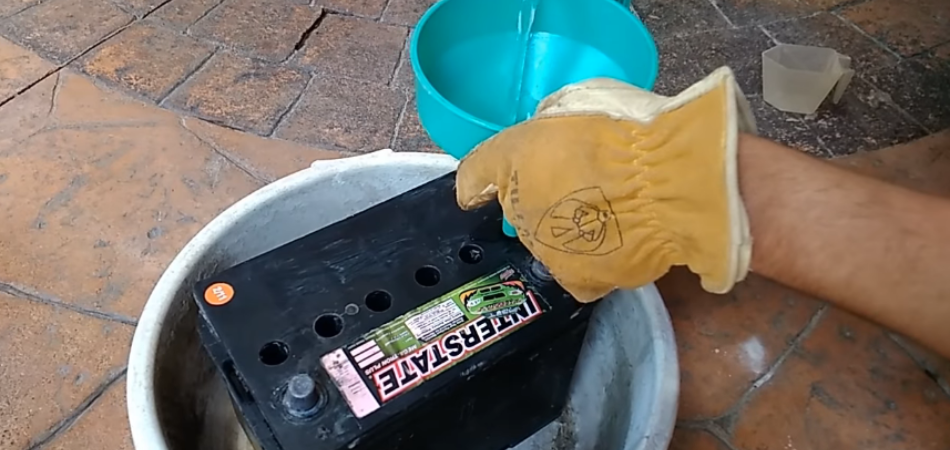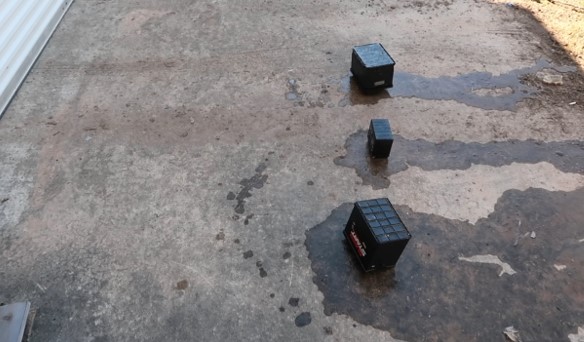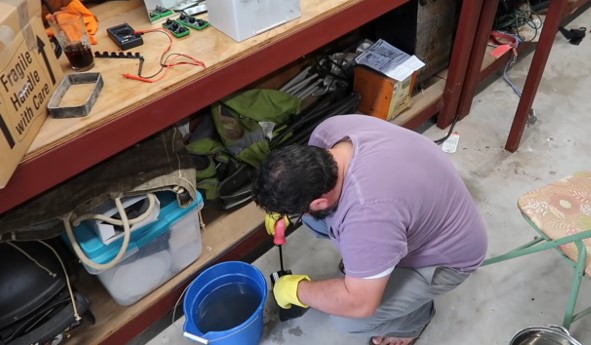Hi, I'm Luis Johnson, an automobile technician, and power equipment professional. By profession, I'm a businessman and operate a car workshop. I have created this...Read more
A great mistake people often make is that when their car battery stops holding charges, they buy new batteries. There is no need to do this as there are DIY methods of reconditioning dead car batteries.
So now you might ask, can I recondition a car battery that won’t hold a charge? Yes, you can. All you need is some Epsom salt, boiled distilled water, and a bulb-type battery filler. The entire process will take several hours to complete.
With the help of these few tools, you can recondition your car battery and make it last for an extra couple of years. Sounds very helpful, right? So come on, let’s dive deep into the discussion of how to recondition a car battery that won’t hold charge!
What Does Recondition Car Battery Mean?
A reconditioned car battery is one that has its old liquids drained out and then both new and old liquids put back in. And reconditioning is also known as refurbishing, so don’t get confused when you see the latter word.
And doing so is very cheap. A new car battery can cost you around 100–200 USD, whereas reconditioning it will cost you less than 20 dollars. This is why when you are on a tight budget, reconditioning a car battery is a smarter choice.
Plus, a perfectly reconditioned car battery can last from 1 to 3 years extra. On average, they last 2 years quite easily. Since a battery stops holding charges due to its contaminated solution inside, replacing it with a new solution solves the problem.
How To Recondition A Car Battery That Won’t Hold Charge?
Remember, you need a minimum of six hours to finish reconditioning a car battery. And make sure to wear gloves and glasses because the solutions you will be using are hazardous to your health.

Step 1 – Mix Epsom Salt with Boiled Distilled Water
A four-pound bag of Epsom salt and one gallon of distilled water can recondition three car batteries. So, if you want to recondition one battery, calculate the amount accordingly. To do so, boil the distilled water and then pour the Epsom salt there.

Step 2 – Drain the Old Fluid Out of the Battery
Open the upper lid of the battery. Beneath there you will see all the liquids. Then, turn the battery upside down and drain all the old solutions from there. Be sure to collect them in a bucket because you will be needing them later.

Step 3 – Rinse the Drained Battery
Now, you need to give the car battery a thorough clean. For that, regular water is more than enough. Rinse the battery properly so that all the dust and pollutants inside are washed off completely.

Step 4 – Re-drain the Battery Upside Down
After your rinsing is complete, lay the batteries upside down on the ground so that they can drain off all the excess water. Leaving it like this for one and a half hours should suffice.

Step 5 – Fill the Battery with the New and Old Solutions
With the help of a bulb-type battery filler, you now need to pour the old solutions which you have drained along with the new solution which you have created with Epsom salt and distilled water.
Then, leave the battery on a flat surface for six hours. It will let the newly mixed solution completely adapt to the battery environment.

Why Do Car Batteries Stop Holding Charge?
There are multiple reasons why a car battery stops holding charges. If you don’t know the exact reason then diagnosing it might be difficult.
Corrosion and Cracking
Age is a big cause behind why a car battery will not keep a charge. Corrosion and cracking are obvious symptoms that the battery is just too old and used out. Hence, if you know the reason behind what causes corrosion on your car battery terminal, you can protect your battery from it.
Heavy Metals
With time, a car battery can start to form pollutants in its solution. One of the unnecessary outcomes of a car battery is heavy metals. If too much heavy metal is formed in the liquid, then the car will eventually stop holding charges.
Over Exploitation
If you use the car way too often or let the car bear more stress than it was designed to, its battery starts to wear out. As a consequence, it will also stop holding charges eventually.
Simple Tips & Tricks To Extend Reconditioned Car Battery Life
Taking care of the battery and the car can prevent itself from an untimely death. And doing so can also extend a reconditioned car battery’s life. We suggest you to follow these suggestions to make your refurbished battery last longer:
- Test your battery voltage on a regular basis.
- Do not let your automobile unused for lengthy periods of time.
- Clean your batteries on a regular basis. Or at least don’t let too many pollutants form in the liquid.
- Do not utilize electrical accessories such as radio, AC, etc. when your car’s engine is not operating.
- Have your vehicle serviced and checked on a regular basis.
FAQ’s
If you are still unclear about reconditioning car batteries, then don’t worry. We have collected some popular questions regarding this topic from the internet. These should clear your confusion.
How Long Should Battery Reconditioning Take?
The complete process of reconditioning might take as many as 24 hours. Battery backup is lost for around 4 hours during this period. As a result, the following requirements must be met before a battery may be reconditioned. There must be 2 power supply units installed.
How Many Times Can You Recondition A Battery?
Though it is not advised to keep reconditioning your battery over and over again, but in principle, you should be able to perform this process several times more. It will prolong the battery’s lifespan outside the standard of three to five years.
Why Would A Car Battery Not Take A Charge?
Corrosion is one of the most prevalent causes of battery not recharging. Regardless of whether the rust is on the battery wires or the wire terminals, it is a problem that must be addressed. An issue with the alternator is another typical cause of the battery not charging.
Does Idling A Car Charge The Battery?
Yes, idling a car does charge the battery. As long as the car engine is turned on, your car’s battery will keep charging itself.
It is certainly possible to entirely charge your battery using this approach as long as the electronic components are really not depleting it faster whilst the alternator is recharging it.
Can An Alternator Drain A Battery When The Car Is Off?
When you turn off the motor, the alternator cannot drain the battery, but it allows minor electrical accidents to completely deplete your battery. It is called a parasitic drain. A parasitic drain is the battery strain induced by these electrical mishaps.
How Long Does Recondition A Car Battery Work?
Usually, a reconditioned car battery lasts for a couple of years and more. On the other hand, there are cases where a reconditioned battery has lasted another 6-7 years, which makes it a good investment.
Car batteries are costly components. So, the fact that you can recondition a car battery and wind up with a fresh one is a plus.
How Do You Tell If A Battery Is Completely Dead?
If even after reconditioning your car battery does not work, then you can bet on it that the car battery is completely dead. The symptoms include not turning on the ignition, cranks on the starter motor, the engine dying immediately after starting, etc.
Conclusion
Reconditioning a car battery is a very easy job. But be sure to wear safety masks, goggles, and gloves while doing so. Because the solutions which you will be working with are very dangerous for human health.
Moreover, if you recondition a car battery that is at least four years old, it should be replaced instead of reconditioning. A car that hasn’t been started in days or weeks might also cause the battery to lose charge. So, keep the car in regular use.
The bottom line is that buying a new car battery is eight to ten times more expensive than reconditioning it. So if you are in a situation where budget is an issue, you can recondition your car battery after it stops holding charge.

Hi, I'm Luis Johnson, an automobile technician, and power equipment professional. By profession, I'm a businessman and operate a car workshop. I have created this site Batteryquery to help people purchase the right battery for their vehicles. The reason behind creating this site is to help my customers purchase the right car battery who often purchase the wrong one due to their lack of knowledge.
More Posts